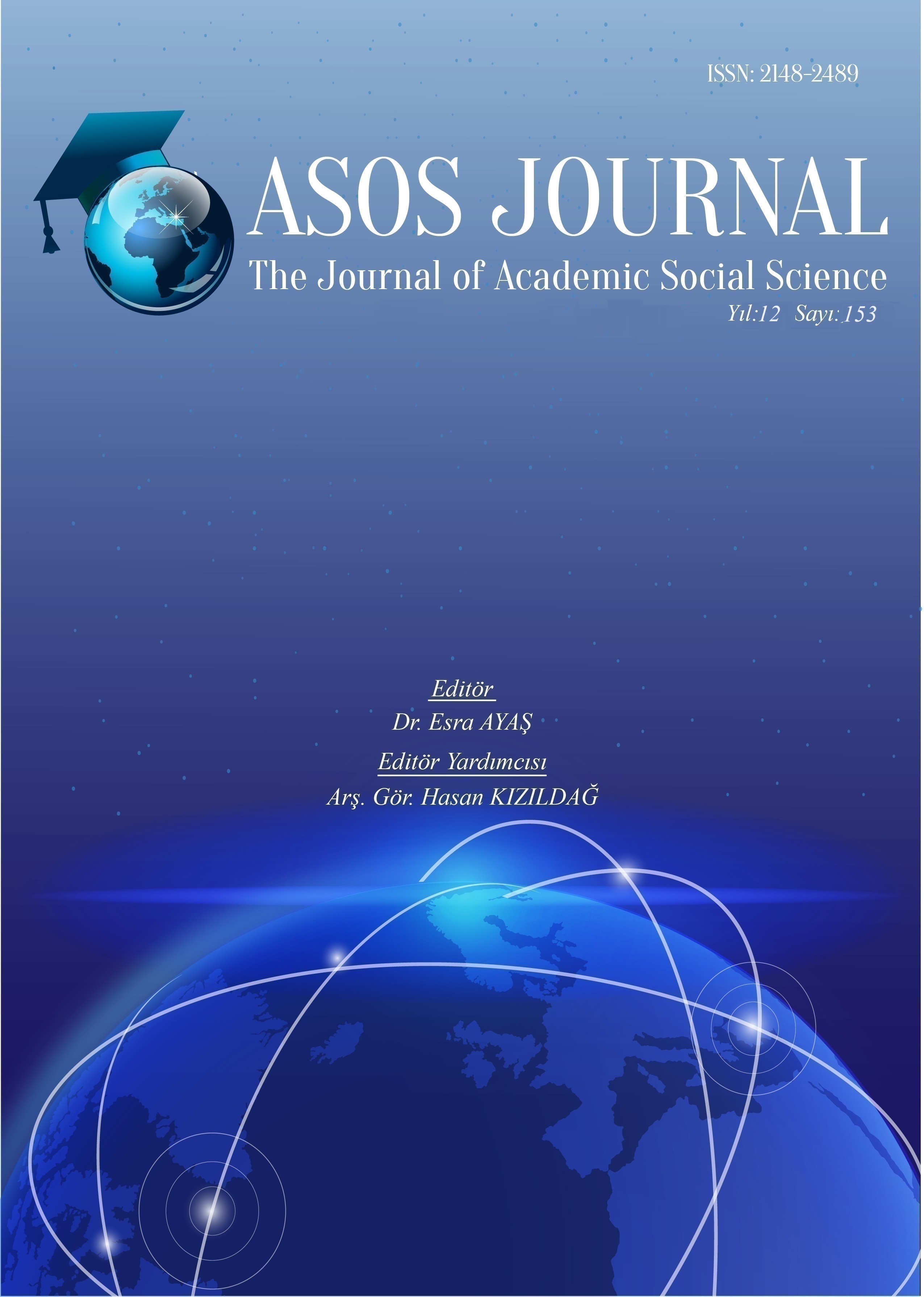Author :
Abstract
Kamu hizmetleri temelinde belediyeler, toplumun ihtiyaçlarına hızlı ve etkili bir refleks göstermekle karşı karşıyadırlar. Başka bir deyişle belediyeler, toplumsal hizmetlere yönelik olarak motor görevini yürütmektedirler. Dolayısıyla, belediye çalışanlarının duygusal zekâ düzeyleri ve hizmetkâr liderlik algıları, belediyelerin performansı bakımından ön plana çıkmaktadır. Bu genel görüşlere dayanılarak çalışmanın amacı; belediye çalışanlarının duygusal zekâ düzeyleri ve hizmetkâr liderlik algılarını eğitim öncesi ve sonrası farklılıklarını ortaya çıkartmaktır. Araştırmanın evrenini Yahşihan belediyesindeki çalışanlar oluşturmaktadır. Araştırmanın örneklemini; gönüllü olarak eğitime katılan ve kolayda örneklem yoluyla seçilen 46 belediye çalışanı oluşturmaktadır. Araştırmada ilk ölçek olarak kaynağını Mayer ve Salovey’in (1997) çalışmasından alan Lee ve Kwak (2012) tarafından geliştirilen ve Türkçe’ye geçerliliği Kayıhan ve Arslan (2016) tarafından sağlanan duygusal zekâ ölçeği kullanılmıştır. İkinci ölçek olarak ise Kaynağını Dennis ve Winston (2003), Page ve Wong’un (2000) oluşturduğu ve Türkçe geçerliliğinin Aslan ve Özata (2011) tarafından yapılan Hizmetkâr Liderlik Ölçeği kullanılmıştır. Bu araştırmada, katılımcılara, farkındalıklarını incelemek amacıyla ön test-son test yapılmıştır. Araştırmanın sonucunda, başkalarının duygularını anlayabilenlerin oranı yüksek düzeydedir. Katılımcılar, kendi duyguları yönetmede; yalnız kalma, nefes egzersizi yapma, ortamdan uzaklaşma, müzik dinleme ve sakin kalmaya çalıştıklarını belirtmişlerdir. Katılımcılara göre, çoğunlukla liderin, hizmetkâr lider olmalıdır görüşü hâkim görüş olarak tespit edilmiştir. Ayrıca araştırmanın diğer bir sonucunda ise tek bir soru hariç, hizmetkâr liderlik algısına ilişkin sorular, eğitim öncesi ve sonrası arasında anlamlı bir farklılık göstermemiştir.
Keywords
Abstract
On the basis of public services, municipalities are challenged to react quickly and effectively to the needs of the society. In other words, municipalities serve as a social engine for social services.Therefore, the emotional intelligence levels and servant leadership perceptions of municipal employees come to the fore in terms of the performance of municipalities. Based on these general views, the aim of the study is to reveal the differences in the emotional intelligence levels and servant leadership perceptions of municipal employees before and after the training. The population of the research consists of employees in Yahşihan municipality. The sample of the research consists of 46 municipal employees who participated in the training voluntarily and were selected through convenience sampling. As the first scale in the research, the emotional intelligence scale, developed by Lee and Kwak (2012), whose source was the study of Mayer and Salovey (1997), and validated into Turkish by Kayıhan and Arslan (2016), was used. As the second scale, the Servant Leadership Scale, whose sources were created by Dennis and Winston (2003), Page and Wong (2000) and whose Turkish validity was made by Aslan and Özata (2011), was used. In this study, pre-test and post-test were applied to the participants to examine their awareness. As a result of the research, the rate of people who can understand the emotions of others is high. Participants stated that they tried to manage their emotions by being alone, doing breathing exercises, getting away from the environment, listening to music and staying calm. According to the participants, the dominant view was that the leader should be a servant leader. Moreover, another result of the research was that, except for one question, questions regarding servant leadership perception did not show a significant difference between before and after the training.





